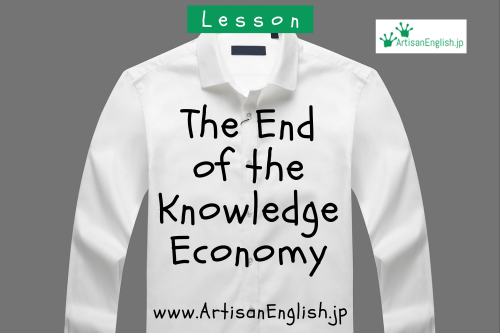
Lesson: The End of the Knowledge Economy
As artificial intelligence continues to advance, the traditional knowledge economy faces significant changes, with many white-collar jobs at risk of being automated. Roles such as data analysis, content creation, and even strategic decision-making are increasingly performed by AI, leading to the obsolescence of certain professions. This shift raises concerns about job displacement and the value placed on human expertise.
In the wake of this transformation, the economy may evolve toward a more experience-driven model, prioritizing creativity, interpersonal skills, and emotional intelligence—areas where humans excel. Professions in fields such as arts, mental health, and human-centred design will likely gain prominence, fostering a shift from routine intellectual tasks to roles that require empathy and nuanced understanding.
Meanwhile, lifelong learning and adaptability will become crucial as workers adapt to new roles that AI cannot easily replicate. The future may see people focusing on supplementing technology rather than competing with it, forging partnerships that emphasize human ingenuity in a world increasingly driven by automation.
YouTube / iTunes / Spotify / Radio Public / Pocket Casts / Google Podcasts / Breaker / Overcast
Listen to ArtisanEnglish.jp posts & lesson intros here.
Example Article
Each conversation topic is based on a theme. In order to help students acquire a basic understanding of that topic, four media articles are provided for them to read. I will never test you on the articles, but I strongly suggest you book lessons far enough in advance to give yourself enough time to properly prepare. The better prepared you are, the more benefit you will receive from our conversations.
Below is an example article for this conversation topic.

